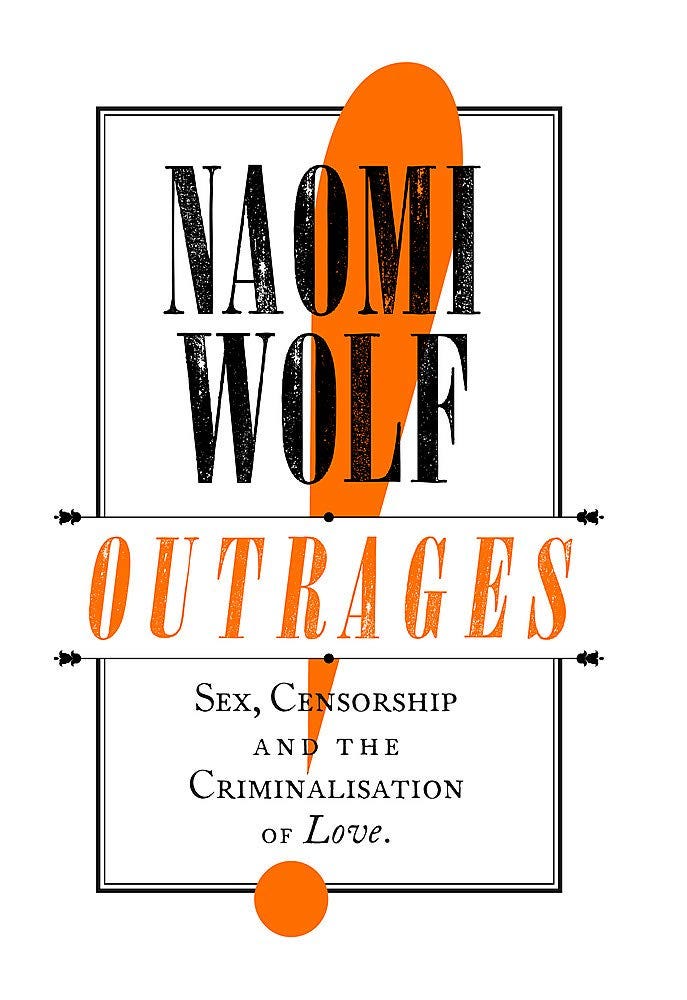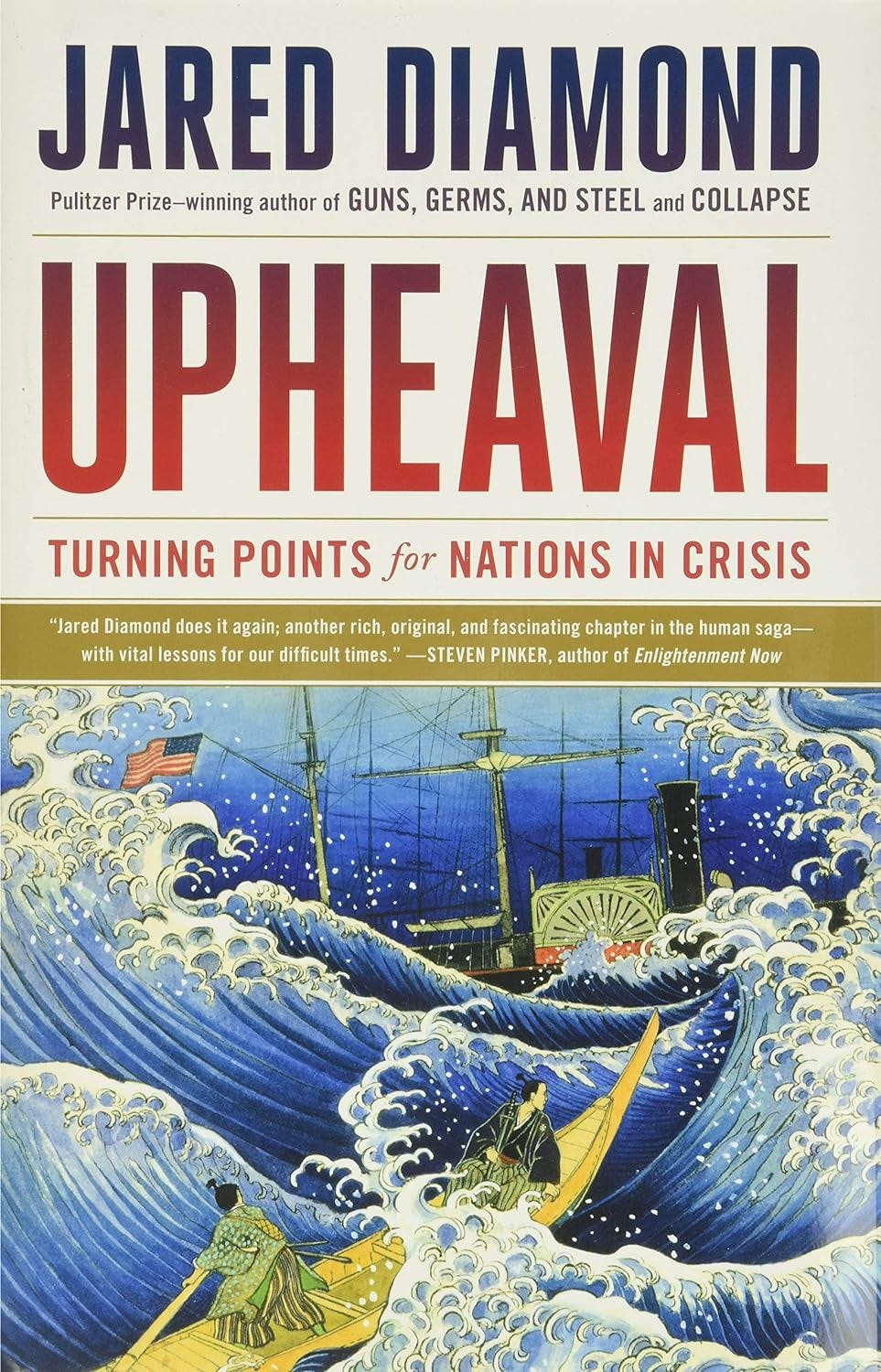Preventing the Naomi Wolf Problem
Why Do Authors Get Their Subjects Ruinously Wrong? What Can We Do About Bogus Books?
Despite my disinterest in her work, author Naomi Wolf is popular enough that I find her impossible to avoid from time to time. Recently, she’s been discussing her study of the New Testament. So much of it, she says, “has been mistranslated, or, shall I say, creatively translated. . . .” But has it? Or is Wolf simply out of her depth? She’s not conversant in the original language, nor the first-century context required to critique existing translations of it.

Wolf’s foray into biblical studies reminded me of her previous romp through Victorian criminal records. She fatally misread evidence for claims in her book Outrages—which a BBC interviewer exposed on air. Honestly, I felt terrible for her. It’s every author’s worst nightmare. Every publisher’s, too. The UK edition was already out, but her American publisher canceled the book before release; a second U.S. publisher later picked up the fraught project and released it.
In the aftermath, people wondered where Wolf went wrong and how to prevent similar blunders. “When is a writer erudite,” asked Philip Cohen in the New Republic, “a renaissance person, a polymath—and when are they merely trespassing superficially into areas of knowledge they haven’t mastered, imposing their own prejudices or yanking cherry-picked tidbits out of context?”
Getting It Wrong
The problem, as he Cohen pointed out, goes well beyond Wolf; anyone writing beyond their area of expertise might swerve off the road. Just days before Wolf’s interview, for instance, Anand Giridharadas dismantled Jared Diamond’s most recent book, Upheaval, for “hoo boy” generalizations and errors, all of which amount to reasonable distrust of the entire effort.
Giridharadas called for mandatory fact checking of all nonfiction publishing; others have as well. But having sat on the publisher’s side of the desk, I can say there are rarely funds for it. A good editor can catch a lot, but a full-on fact check is beyond the financial constraints of the average nonfiction book project—every one of which is a speculative enterprise.
Across-the-board fact checking would raise the investment (and financial risk) of the publisher and thus raise new barriers for projects. The higher the hurdle the less likely publishers will gamble on new voices—or even mid-tier authors with worthy projects now suddenly too pricey to justify.
Still, Giridharadas’s point holds. Something should be done. Project-specific fact checks happen now and will continue. Perhaps that might expand on a selective basis as publishers see the benefit. All it takes is a large embarrassment or two for publishers to think twice about it. I know from bitter experience: I once had to pull a fast-selling book from the shelves over gross inaccuracies. It was a disaster.
But it’s also worth pointing out that fact checking is of limited use. As Philip Cohen noted, mistakes in research and writing—and subsequent misinformation in books—often come down to interpretive and contextual failures. Nonspecialists misread the special stuff all the time; if they didn’t, there’d be no need for specialists.
Fact-checkers aren’t much help here. They might have caught several of Jared Diamond’s mistakes, but I doubt they would have saved Naomi Wolf her embarrassment. It’ll be interesting to see her Bible study produces a book. New Testament scholars will likely have a field day.
The Autodidact’s Curse
Wolf fell prey to what economist Bryan Caplan calls “the autodidact’s curse,” a punchy label for the dynamic Cohen described. “What I do is so interdisciplinary so I’m always worried about this autodidact’s curse,” he explained on the arts-and-social-science podcast, Conversations with Tyler, “where you’ve read a ton of stuff but you still haven’t actually talked to anyone who knows what’s going on.”
The problem is that books can only reveal so much. Every field contains information beyond the available literature. People within a discipline possess assumptions, operational definitions, and context they take for granted and rarely make explicit. That insider information bears on what matters and why: the interpretation of data, relative importance of facts, people, and events, and more. In Wolf’s case, it was the difference between assuming a person had been executed or saved the same fate, a substantial detail to flub.
The only reliable way to access insider information is for the outsider to solicit insider feedback. Caplan’s process? He contacts every living person he cites in his drafts and asks them to either read the whole thing or at least check if he’s accurately represented their work. If that seems too rigorous, or vulnerable, inviting two to three subject-matter experts to review a manuscript could go a long way.
This isn’t to say experts are always right, far from it. We should all be more discerning and critical readers. But I’d trust a New Testament scholar’s translation of the Gospels before Naomi Wolf’s any day.
One idea suggested by Cohen? More collaborative work between specialists in different fields. I could imagine this being helpful, but as novelist Jerzy Kosinksi once said, “A book is born in privacy. . . .” Many authors feel as if writing is a solitary venture. They may simply be more productive working alone, free to conceptualize and wrestle narratives and arguments into shape on their own. Or they may be protective of their ideas and reluctant to share them too early. Authors keep secrets—until they share them all at once.

It’s valid to work alone for productivity, protectiveness, or both, but there are tradeoffs. The more supposedly earth-shattering the claim, for instance, the more likely a writer will want to keep it under wraps; simultaneously, the more earth-shattering the claim, the more likely the case is overstated, flawed, and potentially bogus. In other words, the greater the chance for author error, the less likely many authors will get outside help to prevent the error.
Risks and Reward
Complicating matters, there’s a high risk-reward factor for publishers to release earth-shattering books, offering a perverse incentive to overlook the lack of external validation and thus publish errors occasionally.
Given Wolf’s known history of getting things wrong, publishers can’t be seen as utterly faultless here. She represents an instance where selective fact checking would have made sense. And if there is a Bible book in the offing, Lord have mercy; it’s going to take more than a copy editor thumbing through a Greek dictionary to ensure she hasn’t just word-studied her way into a daisy chain of laughable revisionism.
There are no one-size-fits-all, across-the-board solutions to a problem like human error, even if we limit it to author error in nonfiction books. That’s not to say nothing can be done about the Naomi Wolf problem.
On a case-by-case basis authors and publishers alike must keep their ears attuned to claims that sound too pat, too self-serving, too shocking, too no-one-has-ever-said-anything-like-this, too everybody-has-had-this-wrong-until-now. If that’s the case, it makes sense to give the manuscript some added scrutiny before the printers get their hands on it.
Thanks for reading. Please hit the ❤️ icon if you enjoyed the piece. And while you’re at it, spread the love and share it with a friend!
If you’re not a subscriber, take care of that now. When the next free review or essay hits your inbox, you’ll be glad you did.




Now that you mention it, how about forwarding the memo to the head honchos at The Atlantic? Their science writer, Ivy league PhD notwithstanding, divulged earlier this year the awful news about our impact on the natural world: a century and-a-half or so ago, we transformed the peaceful, harmless grizzly bears of California into blood-thirsty monsters by misrepresenting their occasionally inconvenient predation of evil cattle as acts of horror and abomination. And this brave premise is supported by the fossil record, which indicates that ursus horribilis subsisted on a harmless diet consisting primarily of plant forage before the Golden State began to be overrun by the bovine masses. Fact checking of this story didn’t require any more expertise than a vocabulary including the word ‘omnivore’ which apparently isn’t taught in postgraduate programs anymore. Anyway, that case stuck in my craw, so thanks for listening!
This reminds me of peer-reviews for manuscripts submitted to scientific/medical journals. Sounds like some non-fiction may benefit from a similar approach but doesn’t seem as practical.